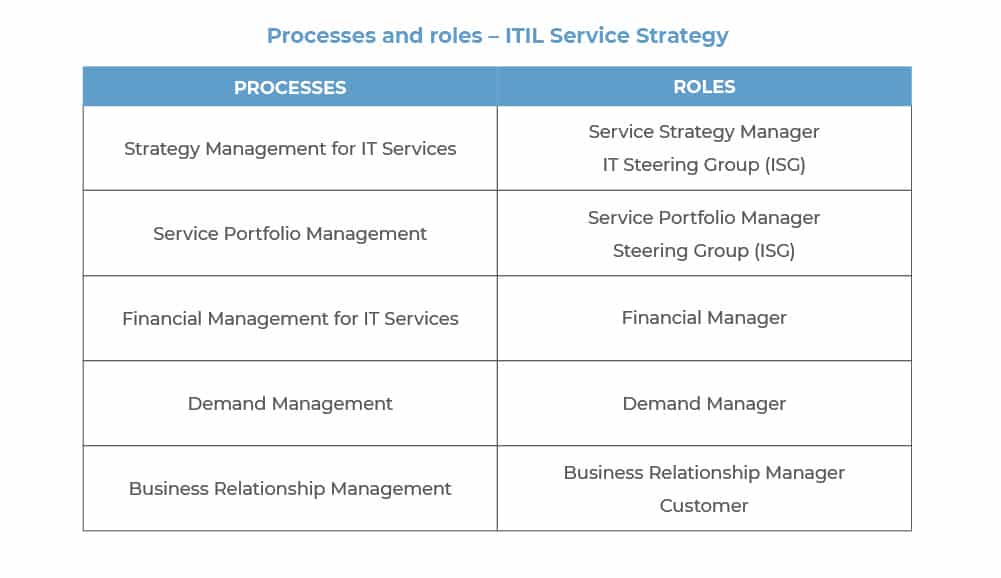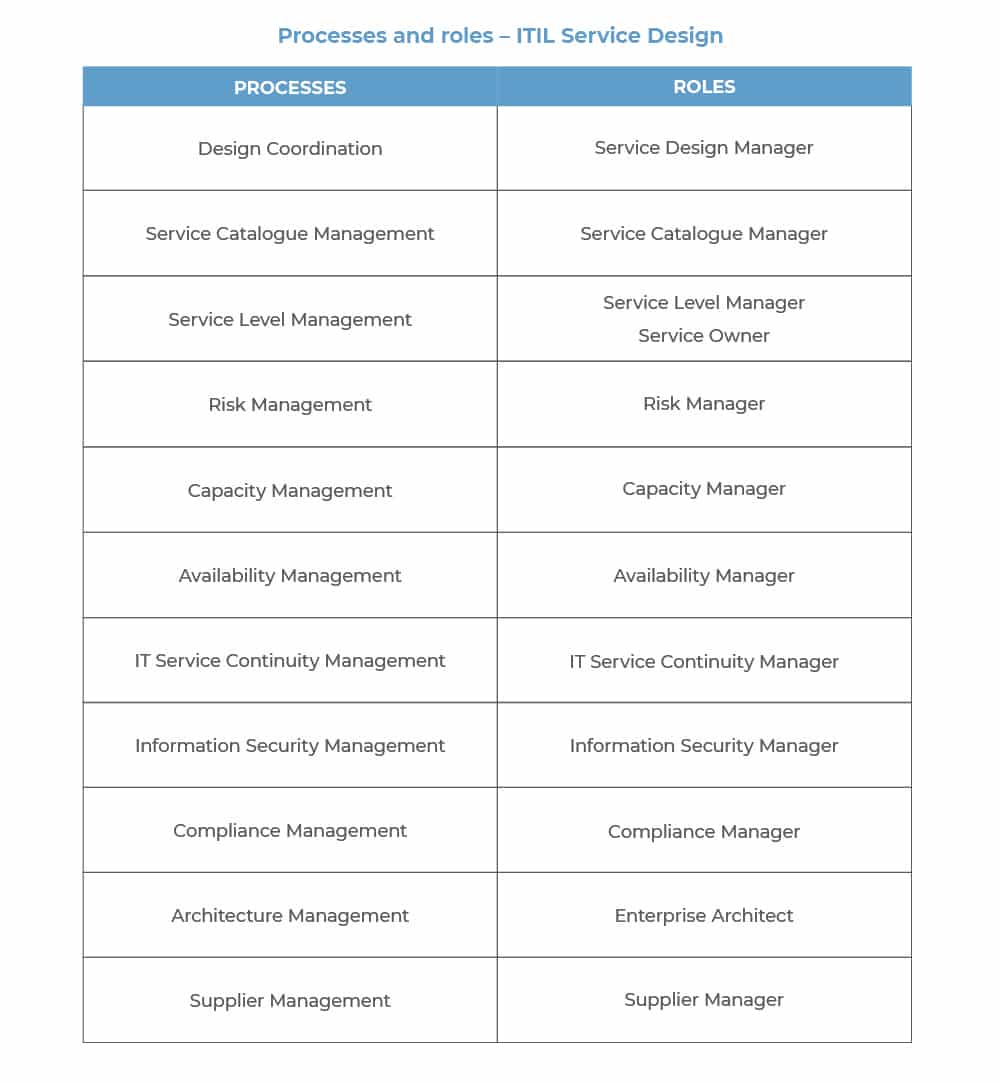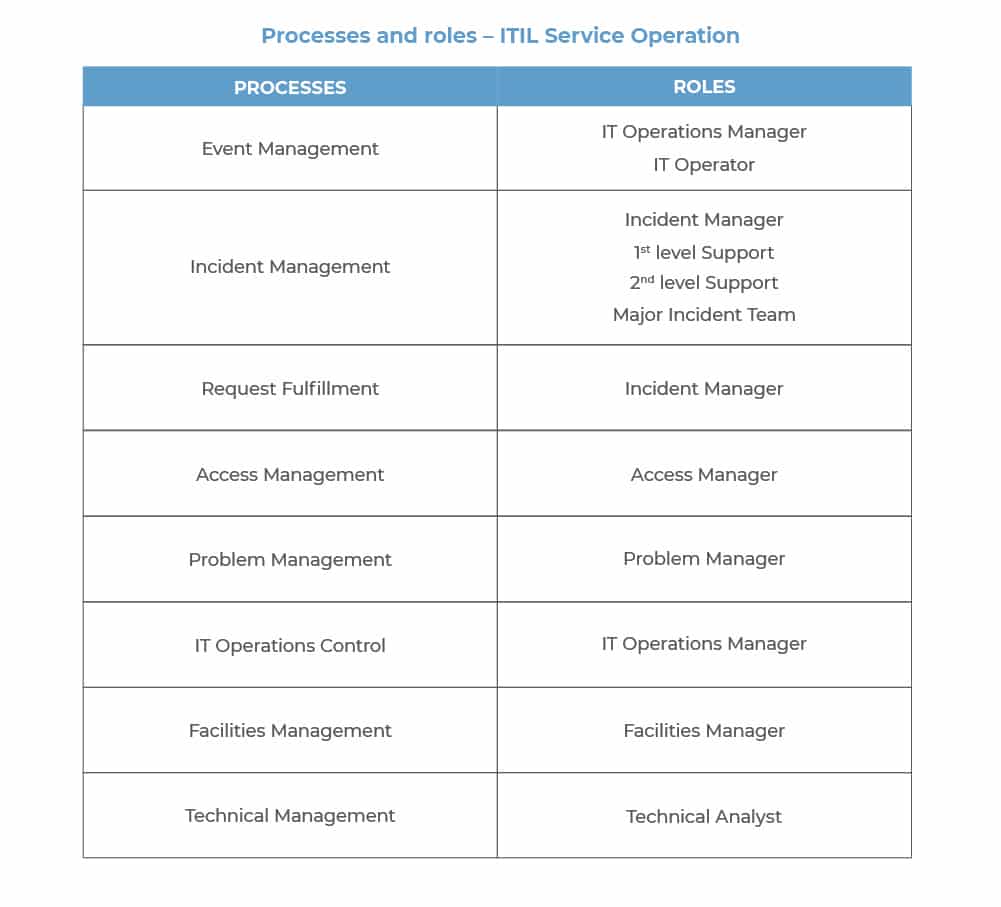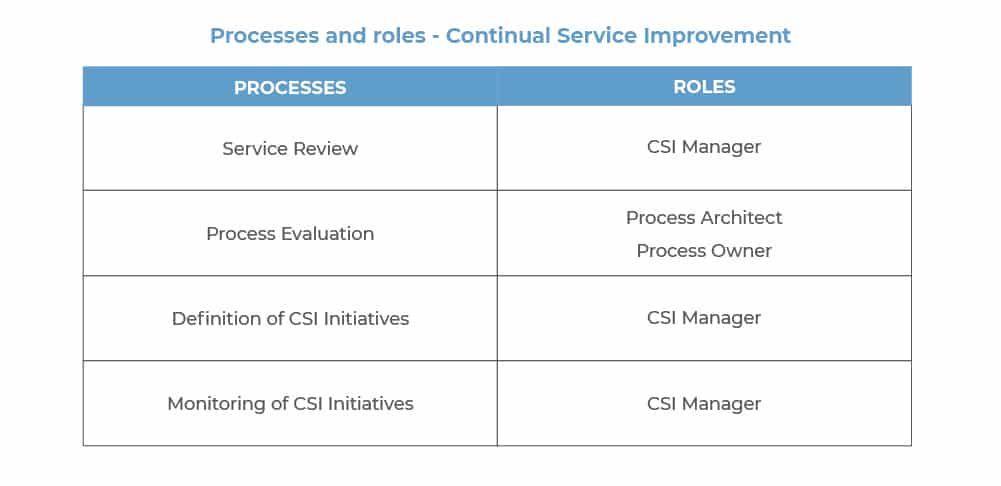The ITIL best practices framework is based around five Service Lifecycle modules: Service Strategy, Service Design, Service Transition, Service Operation, and Continual Service Improvement, with each of them containing a number of ITIL Processes and Functions within it. In this article we’ll explore processes and functions for each module.
The key to running efficient IT Service Management is knowing who does what; therefore, within the ITIL framework you’ll find numerous roles involved in the process(es) itself. In this article, you’ll find a list of all ITIL processes and roles that are involved in process execution.
Some roles span across several processes, and have different influence on the process itself. Those complex relationships are maintained within the RACI (Responsible, Accountable, Support, Consulted, Informed) matrix, which spans across all Service Lifecycle processes and roles.
The ITIL best practices framework is based around five Service Lifecycle modules: Service Strategy, Service Design, Service Transition, Service Operation, and Continual Service Improvement. There are numerous roles involved in the process(es), such as:
- Service Strategy Manager
- Service Portfolio Manager
- Financial Manager
- Demand Manager
- Business Relationship Manager
- Etc.
Service Strategy
The ITIL Service Strategy module helps to clarify relationships between various services or processes, with business models or objectives that they support. In a nutshell, Service Strategy looks at what a business needs and what it doesn’t, develops a strategy that will satisfy the business needs, focuses on using services in order to create business value, and chooses the appropriate strategy for service delivery. Read this blog post for more information: Strategy Management for IT Services – holding your steering wheel.

Service Design
The purpose of ITIL Service Design is to design appropriate and innovative IT services, including their architecture, processes, policies, and documentation, in order to meet current and future agreed business requirements. The Service Design part of the Service Lifecycle starts with business requirements, and ends with the service solution which meets those requirements, and it’s then passed to Service Transition to be evaluated, built and tested, before deployed as a new or changed service.

Service Operation
>The ITIL Service Operation, part of Service Lifecycle, is responsible for the execution and running of day-to-day operations required to deliver services according to agreed terms and SLAs. It’s important for Service Operation to keep the costs reduced and under control, while improving the quality of services delivered. You can find an example in: ITIL V3 Change Management – at the heart of Service Management.

Continual Service Improvement
Continual Service Improvement’s (CSI) area of focus is on increasing efficiency and cost optimization of services and IT Service Management processes. CSI is responsible for the continuous alignment and realignment of IT services and business processes, driven by ever-changing business needs. And yes, CSI is responsible for taking advantage of improvement opportunities within CSI itself.

Additional Information
As presented in this article, a breakdown of ITIL lifecycle stages reveals a great number of processes and roles within them. This breakdown should give you a clear picture about ITIL service lifecycle stages, and processes and roles within each stage, but this is a textbook example. In real life, some processes span across multiple lifecycle stages, and some throughout the lifecycle as a whole, making this breakdown fuzzier and bit more complex.
You can find more on this topic by reading this article: ITIL Service Lifecycle – processes and functions overlapping the phases.

 Neven Zitek
Neven Zitek 



